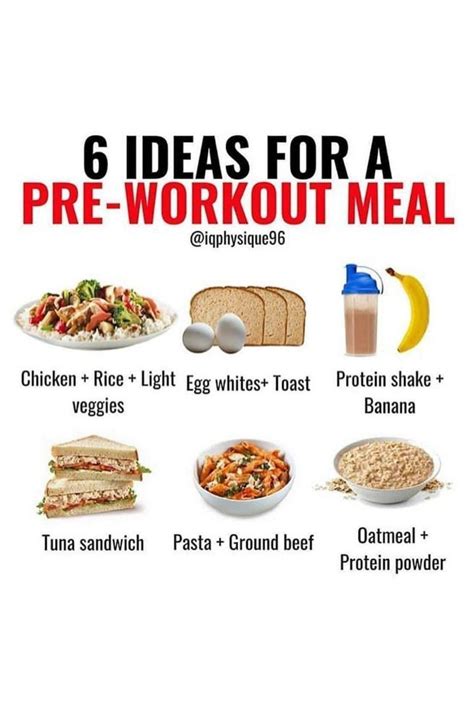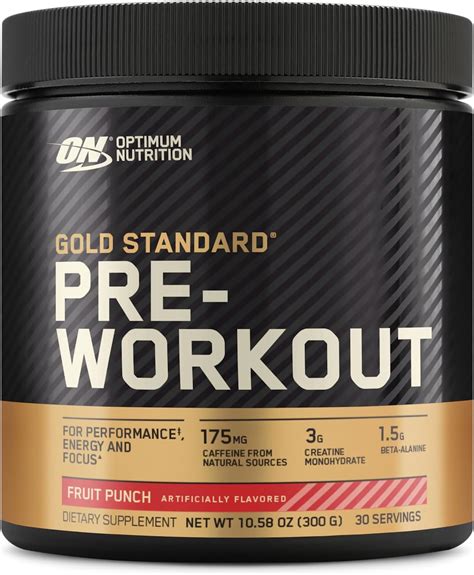Fueling Your Body for Optimal Performance
To truly unlock your potential in the gym, it’s not just about the effort you put in, but also the fuel you provide your body beforehand. The right pre-workout nutrition can significantly impact your energy levels, focus, strength, and endurance, directly translating into more effective workouts and better results. Conversely, improper fueling can lead to fatigue, poor performance, and even muscle breakdown. Let’s dive into the science of what to eat and when to ensure you’re always performing at your peak.

The Pillars of Pre-Workout Nutrition
A balanced pre-workout meal or snack should strategically combine macronutrients to provide sustained energy, protect muscles, and prepare your body for the demands of exercise.
Carbohydrates: Your Primary Energy Source
Carbohydrates are your body’s preferred fuel. They are broken down into glucose, which is stored as glycogen in your muscles and liver. During exercise, your body taps into these glycogen stores for energy. Choosing the right type of carbs and timing is crucial:
- Complex Carbs (2-3 hours before): Oats, whole-grain bread, brown rice, sweet potatoes provide a slow and steady release of energy, preventing energy crashes.
- Simple Carbs (30-60 minutes before): Fruits like bananas, berries, or a small amount of fruit juice can offer a quick burst of energy for immediate use, especially if you’re short on time.
Protein: Muscle Protection and Repair
Consuming protein before a workout helps to prevent muscle breakdown during intense exercise and kickstarts the recovery process. While not a primary energy source, it’s vital for preserving lean muscle mass.
- Sources: Greek yogurt, lean chicken, turkey, eggs, protein powder, cottage cheese.
Healthy Fats: Sustained Energy (in moderation)
While fats provide sustained energy, they digest slowly. For pre-workout, they should be consumed in small amounts and ideally further out from your training session (e.g., part of a meal 2-3 hours before) to avoid digestive discomfort during your workout.
- Sources: Avocado, nuts, seeds, olive oil.

Timing is Everything
The timing of your pre-workout meal is almost as important as its composition. This can vary based on your individual digestion and the intensity of your workout.
- 2-3 Hours Before: A larger, balanced meal containing complex carbohydrates, lean protein, and a small amount of healthy fats. This allows ample time for digestion and nutrient absorption.
- 30-60 Minutes Before: A smaller, easily digestible snack rich in simple carbohydrates and some protein. Think a banana with a tablespoon of nut butter, or a rice cake with a small scoop of protein powder.
Key Performance-Boosting Supplements (Optional)
For those looking for an extra edge, certain supplements have scientific backing for enhancing performance:
- Caffeine: Known to improve focus, reduce perceived effort, and boost endurance. Consume 30-60 minutes before training.
- Creatine Monohydrate: Increases strength, power, and muscle mass by enhancing the body’s ability to produce energy rapidly. Best taken consistently, not just pre-workout.
- Beta-Alanine: Helps buffer lactic acid, delaying muscle fatigue and improving endurance, especially for high-intensity exercise.
- BCAAs (Branched-Chain Amino Acids): May help reduce muscle soreness and decrease muscle breakdown during prolonged exercise.

Hydration: Don’t Forget Water
Dehydration can significantly impair performance, causing fatigue, reduced strength, and impaired focus. Ensure you’re well-hydrated throughout the day and drink 16-20 ounces of water 2-3 hours before your workout, and another 8-10 ounces 30 minutes prior.

What to Avoid Before a Workout
Some foods can hinder your performance and cause discomfort:
- High-Fat Foods: Slow digestion can lead to sluggishness and stomach upset.
- Excessive Fiber: Can cause gas, bloating, and discomfort during exercise.
- Sugary Drinks/Candy: Can lead to a rapid spike and crash in blood sugar, leaving you feeling tired.
- Foods You’re Sensitive To: Always listen to your body and avoid anything that causes digestive issues.
Sample Pre-Workout Meals & Snacks
- 2-3 Hours Before: Oatmeal with berries and a scoop of protein powder; whole-wheat toast with avocado and eggs; chicken and brown rice with a small portion of vegetables.
- 30-60 Minutes Before: Banana; apple slices with a small amount of peanut butter; small Greek yogurt; a handful of grapes; a small pre-workout bar.

Conclusion: Find Your Perfect Fuel
The best pre-workout fuel is ultimately personal. What works for one person may not work for another. Experiment with different foods, timings, and quantities to discover what makes you feel energized, focused, and ready to crush your gym sessions. Pay attention to how your body responds, and adjust your nutrition accordingly. By strategically fueling your body, you’re not just working out; you’re optimizing your performance and accelerating your journey toward your fitness goals.




